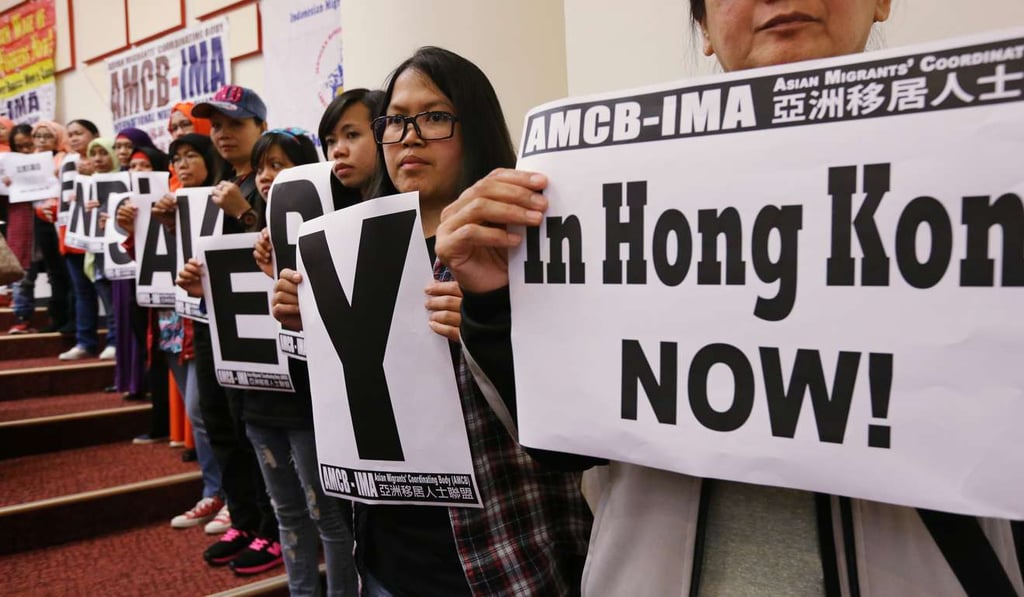The Indonesian child maids of Hong Kong, Singapore: why they’re suffering in silence
A lack of legal protection for underage domestic workers leaves them too frightened to speak out about abuse, even as the agencies that forged their passports go largely unpunished

Lia ran away from home more than a decade ago, fleeing three elder half-brothers whose physical and emotional abuse had made a misery of her life in Surabaya, Indonesia.
So when she found an employment agency in Jakarta that specialised in recruiting women for jobs abroad, she had little to lose. “I was in a broken family. That’s why I left. I wasn’t scared of anything because of the trauma I faced at home,” Lia recalled.
Lia’s troubled circumstances – and bravery – were far from unique among the many women who arrived at the agency seeking work as domestic helpers. But there was a detail that made her stick out: she was only 14.
That was a minor hurdle for the agency, which stood to gain much from Lia and the chain of fees for health checks, application fees, training and flights abroad that would leave her in debt long after she arrived in Macau to be a maid. The fix was simple: it forged Lia’s date of birth to make her four years older. Even then, “18-year-old” Lia was not old enough to work abroad as a domestic helper – Indonesian law requires nationals to be at least 21 for this form of work – but she was old enough for a tourist visa that her agency used instead. Keeping cool at Macau customs with a fake passport wasn’t as hard as it might sound. “I was a big kid,” said Lia.

Campaigners say that every year there are hundreds of girls like Lia trafficked into child labour as domestic helpers in Hong Kong, Singapore and other Asian markets by predatory agencies that forge dates of birth on passports. Lia herself says she “knows more than 200 [maids] who are underage in Hong Kong”.
The International Labour Organisation defines child trafficking as the movement of a child with the purpose of labour exploitation – and says that migration-related cases are the “worst form of child labour”.